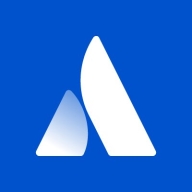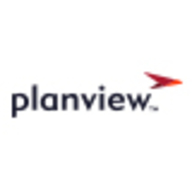


Find out what your peers are saying about Atlassian, Microsoft, Nutanix and others in Application Lifecycle Management (ALM) Suites.
It's always hard to measure ROI precisely, but overall, the development time usually pays off within a year through efficiency gains.
On a scale of one to ten, where ten is the best, I would say ROI is an eight.
Jira's customer support is one of the best I have ever dealt with because they respond quickly.
I did not face any issues with stability or upgrades.
Resolving issues took time since understanding our unique problems was not always straightforward for support teams.
I would rate technical support from Microsoft for Microsoft Azure DevOps an eight out of ten.
Scalability for Jira is great, and it handles growth easily from 100 to thousands.
The scalability has left me pleased, not just for our teams in Europe, the Middle East, and Asia, but as we expanded into North America, Africa, and even Australia.
Its stability might be attributed to its legacy as an on-premise solution that has been in development for more than 25 years.
Everything works ninety-nine percent well.
The solution is stable, and we did not encounter any stability issues.
Focus more on improving API integration and automation tools, not just the design.
To improve Jira, maybe some AI features could be added.
Those processes are a bit difficult for some customers who may not have technical knowledge and don't go through the entire documentation.
Enhanced system guidance highlighting best practices would be beneficial, especially if experienced personnel are not available for support.
Instead of customers having to try many options themselves, they benefit from practitioner recommendations.
Even if only five people from your team use a financial plugin, you still pay for all 100 seats.
They don't even provide a POC where you can have a sandbox or stuff that you can go through and see how exactly it's costing.
I find it to be expensive.
The price and licensing of Microsoft Azure DevOps were fair.
You can build your own workflows and make it work exactly the way your team needs and integrate it with almost every third-party software.
No organization would use just one vendor, and the goal is about what works well, is scalable, performs well, and offers a reasonable total cost of ownership.
Our company organized a training session with a certified Azure expert, which was extremely beneficial for adopting best practices during the initial three months.
I can't approve my own request and move the code around without a review.
| Product | Market Share (%) |
|---|---|
| Jira | 16.0% |
| Microsoft Azure DevOps | 11.9% |
| Planview AgilePlace | 1.7% |
| Other | 70.4% |


| Company Size | Count |
|---|---|
| Small Business | 104 |
| Midsize Enterprise | 56 |
| Large Enterprise | 149 |
| Company Size | Count |
|---|---|
| Small Business | 42 |
| Midsize Enterprise | 26 |
| Large Enterprise | 69 |
| Company Size | Count |
|---|---|
| Small Business | 2 |
| Midsize Enterprise | 3 |
| Large Enterprise | 7 |
Jira is a powerful cloud- and subscription-based application lifecycle and issue management solution. It is designed to aid users both in project management and in resolving any issues that arise at any point in the software development process. It is especially concerned with easing the ability of developers to collaborate.
Jira Benefits
Some of the ways that organizations can benefit by choosing to deploy Jira include:
Jira Features
Real-time notification feature. Users can set Jira so that it offers them notifications that contain critical information in real time. It can send users email notifications when pressing issues have been updated. They can also set it to notify them about tasks that may be due, or other similar events.
Reviews from Real Users
Jira is a powerful solution that stands out when compared to many of its competitors. Two major advantages it offers are its workflow engine and its highly customizable dashboard.
Bharath R., the tool implementation and project management lead at a financial services firm, writes, “I feel the strongest feature of Jira is its workflow engine. It empowers us to automate our workflows within our organization. It's the one characteristic of Jira which I think can help any organization, be it in any domain.”
Uday J., a staff engineer at a computer company, says, “Another thing that I like a lot about Jira is that in the dashboard, you can plug the modules that you want. You can enable certain sections. For example, you can show trend history, open Jira tickets, etc. Some of the managers have created a dashboard for each engineer.”
Microsoft Azure DevOps is a cloud service that enables developers to collaborate on code development projects and create and deploy applications quicker than ever before. The service helps unite developers, project managers, and software development experts through a collaborative experience while using the application. For the users' convenience, Azure DevOps offers the user cloud services through Azure DevOps Services or an on-premises service using Azure DevOps Server. In addition, it supports integration with additional services and adding extensions, including the ability for the user to create their own custom extensions.
Azure DevOps provides a variety of unified features that can be accessed through their web browser or IDE client, such as:
Benefits of Microsoft Azure DevOps
Microsoft Azure DevOps offers many benefits, including:
Reviews from Real Users
Microsoft Azure DevOps stands out among its competitors for a variety of reasons. Two major ones are its ability to forecast how long each task will take and the ability for users to follow the entire development process.
PeerSpot viewers note the effectiveness of this solution. An executive chief operating officer for a cloud provider notes, “We can forecast tasks and the number of hours a task will take and can compare it with how long a task actually takes.”
Carlos H., a product and system director at SPCM, writes, “I think the most usable thing is that you can follow the whole progress of the development process. This makes it very useful for us.”
Planview AgilePlace is a cloud-based solution designed to provide businesses with a continuous flow of work to help teams accelerate delivery times by visualizing their work with enterprise Kanban boards and lean metrics. Planview offers project managers the visibility, resource management, and real-time analytics necessary to help their teams reduce bottlenecks and dependencies and work more effectively. By using Kanban boards, teams are able to visually track and manage the flow of their work from the strategy level, through implementation up to end-product delivery.
Planview AgilePlace Benefits
Planview helps teams to smoothly implement their strategies by offering its users the following benefits:
Reviews from Real Users
Planview AgilePlace stands out among its competitors for a number of reasons. Several major ones are its user-friendly management pane, the visibility that it provides for its users, and its agile management capabilities.
A manufacturing manager at a large manufacturing company writes, “Using the tool seems to save time versus trying to do things in a regular manner. It is highly collaborative; everybody can see things in one place. It is a highly functional, but pretty simple tool. That is hard to find: A tool that has a lot of functions, but is also simple.”